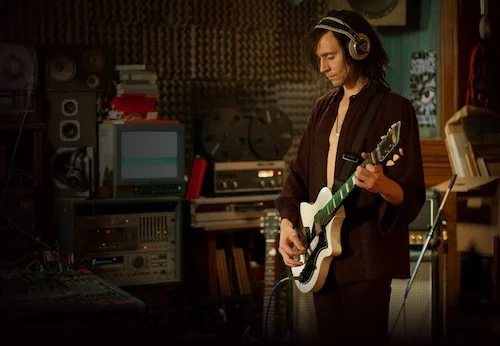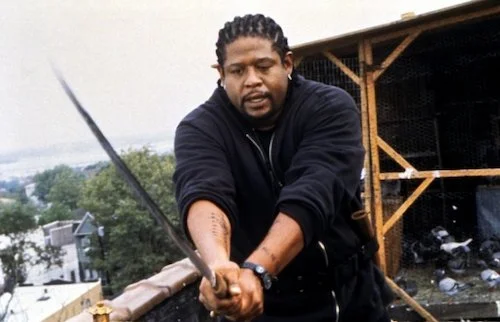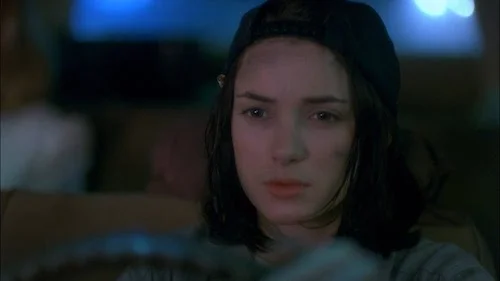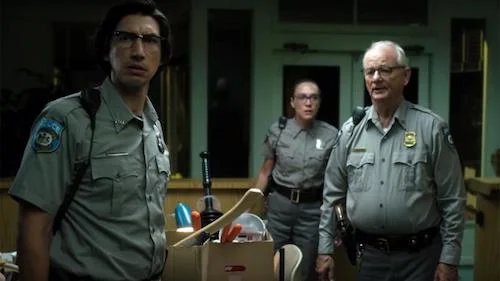Jim Jarmusch and his Love for Reinventing the Oversaturated
Chances are you might be familiar with the indie filmmaking legend Jim Jarmusch, whose many refreshing takes on tired narratives breathes new life into the exhausted tales we know. These can be everyday occupations around us (taxi and bus drivers), stereotypical genres (westerns, vampire flicks), or even just conventional scenarios (a new take on heartbreak). Jarmusch is iconic, because he has a gift for showing us what was always there in an oversaturated market this entire time. The best part is he usually has the nerve to bust these films out well after the crazes are over. Those of us that know better are willing to stay.
Enter The Dead Don't Die: a zombie flick due out later this year. Like your typical Jarmusch production, there is a highly varied cast including Danny Glover, Selena Gomez, and Caleb Landry Jones; we also see familiar Jarmusch faces like Bill Murray, Iggy Pop, Tom Waits and Tilda Swinton. All we know so far is that this is a zombie comedy drama, where a town's citizens and authority figures band together to stop a wave of the undead arising from the local cemetery. Knowing Jarmusch though, we have yet to find out what will set this film apart from other same-old films of the same genre. A small teaser is that these zombies are obsessed with the habits they held from when they were alive. One corpse (Pop’s) craves coffee. Another desires chardonnay. Maybe there is a conversation about daily obsessions here? We at least know there will be something.
That is exactly what sets Jarmusch apart from other filmmakers, though. He understands these characters as fully fleshed out beings. It's as if the story only exists through them, rather than the narrative depending on its characters. A key example is Only Lovers Left Alive: likely the most unique vampire film of the last ten years. Here, we acknowledge that vampires can survive for countless decades (centuries, even). We aren't invested in the horror aspect of things. We are discovering what it would be like to be a being that can survive that long. There are collections of antiques, the ability to be fluent in Latin, and knowledge of the entire world. These are the luxuries often glossed over in horror films. Here, we get the full experience. This includes a vampire being an expert guitar player, with the utmost mental encyclopedia of whatever style and era he desires. Wouldn’t that be a musician’s dream?
A new type of vampire in Only Lovers Left Alive.
Now take Broken Flowers: Jarmusch's idea of a romantic drama, and evidence that he can tone down his eccentricities. After Don discovers he is a father from an unmarked letter, he has to retrace his steps by confronting all of his former lovers. It's a bit of a conventional topic in film, but it's done with such a quirk of its own, there really isn't a film like it. Night on Earth is similarly anchored, as it relishes in the different types of conversations and scenarios that take place in taxi cabs all across the world. Jarmusch made sure to include examples in France, Italy, and even Finland. This celebration of the ordinary also creates a synchronicity: all of this is almost driven as if by fate.
Dead Man, on a drastically different note, is the closest thing we've had to a psychedelic western since Alejandro Jodorowsky’s El Topo. Boasting a Neil Young score (a twanging, improvisational guitar) and deep spiritual themes, this is a mental excursion of our own. On that note, there is also the cult favourite Ghost Dog: The Way of the Samurai, which mixes the urgency of a gangster flick, and the destiny of a samurai production. This time, the score is created by Wu-Tang Clan's RZA (an obvious choice, since the producer also favours combining samurai films with gangster mentalities).
A still from Ghost Dog: one of the more individualistic films of the late ‘90s.
The interesting thing is that many of these works have experienced a second life, as if they were ahead of their time. His efforts in the last ten years have had a different result, but Ghost Dog and Dead Man are the kinds of pictures that are being heavily reassessed and appreciated now. Jarmusch defies the pedestrian way. He loves sifting through the cliches head on -- rather than avoiding them -- and finding a heart that was missed the other thousand interrogations. Dead Man was a precursor to the modern wave of westerns, that somehow followed Unforgiven and Dances with Wolves to boot (and yet still left its own mark). We still haven't really seen a samurai film like Ghost Dog follow it up.
Part of this comes from Jarmusch's appreciation of radical music. Hell, he features these musicians in his films: Iggy Pop, Tom Waits, Joe Strummer, the White Stripes, various Wu-Tang members and more. What do Neil Young, Pop, Strummer, all of these musicians have in common? Their deviations of the genres they defined. The Clash found reggae and new wave through punk rock (amongst other genres). Neil Young went through some crazy phases in his mid career work, enough so that he was crowned the godfather of grunge almost accidentally. The Stooges weren't fit for anyone back when they started. Tom Waits embodies a different universe on each song, for crying out loud. Featuring these artists in front — or behind — the camera is one of the best qualities of a signature Jarmusch production, after all.
A shot of the Los Angeles storyline from Night on Earth.
What does he get from casting these musicians in his films? The realization that Tom Waits is a cinematic treasure as well. A different side of what Iggy Pop is capable of. This is not a dismantling of the rock star persona, or a configuration of stage presence. This is understanding music as art, and film as music. There is depth in every note; so there must be comfort in every trope. Jarmusch understands the truth behind facades, whether it is a stage character or an over-marketed genre. So what if someone like him wants to do a zombie comedy? We are all finished looking at things at face value, and he aims to prove us wrong every time. This is also true with his passion for working with current faces: Winona Ryder and Johnny Depp back in the ‘90s, or Selena Gomez and Tom Hiddleston now. How can these celebrities that most people have “figured out” be brought to a totally new light?
That's what this all is. Finding the unfamiliar in the familiar, maybe even well past the expiry date. If The Dead Don't Die doesn't draw you in on its basic promotion at all, do not be decieved. Jim Jarmusch has never wanted to do the same song and dance before, and it's highly unlikely now. Sometimes he goes a more subtle route (Broken Flowers). Other times, he reinvents a conversation entirely (Only Lovers Left Alive). There aren't many filmmakers like him that can revisit a beaten dead horse, breath new life into it, and ride into town, only to turn every head upon his arrival.
A shot from the The Dead Don’t Die trailer.
This cannot be the same creature that Hollywood pummelled five years earlier. That was left to die. Jim Jarmusch doesn't care. He never tries to market. He only tries to appreciate on a cinematic level. These aren't business ideas. These are homes for characters that the machine strips of any meaning. The Dead Don't Die is an appropriate name for his latest feature, because every idea has life in it if it matters enough for the right reasons. For Jim Jarmusch, they always are.
Andreas Babiolakis has a Masters degree in Film and Photography Preservation and Collections management from Ryerson University, as well as a Bachelors degree in Cinema Studies from York University. His favourite times of year are the Criterion Collection flash sales and the annual Toronto International Film Festival.






